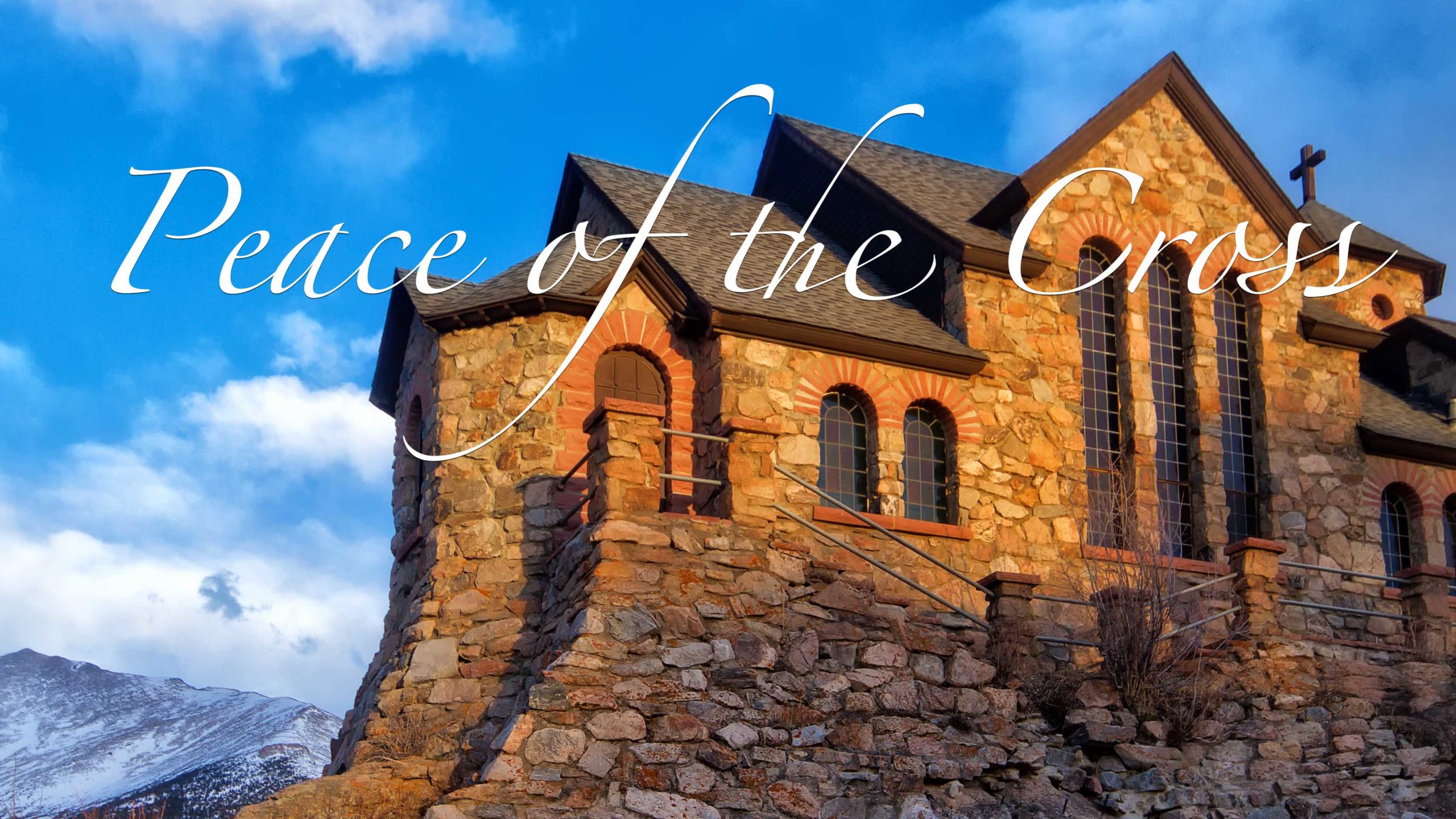
Peace of the Cross
“If then you have been raised with Christ, seek the things that are above, where Christ is, seated at the right hand of God.Set your minds on things that are above, not on things that are on earth.For you have died, and your life is hidden with Christ in God. When Christ who is our life appears, then you also will appear with him in glory.” (Col 3:1–4)
The story of David and Bathsheba (2 Samuel 11-12) is one of the most intriguing stories in the Bible. David, a man after God’s own heart, suffers the death of his infant son as punishment for his adultery with Bathsheba and his murderous scheme to kill Bathsheba’s husband Uriah. Solomon was conceived and born in response to this devastation. “Then David comforted his wife, Bathsheba, and went in to her, and lay with her; and she bore a son, and he called his name Solomon. And the Lord loved him” (2 Samuel 12:24).
Naming is a prophetic act, and Solomon’s name literally means “Peacemaker.” In naming their child Solomon, David and Bathsheba prophetically declared into their life the remedy for their sorrow. Where death brought hostility into their lives, their son Solomon was to bring peace. Solomon’s first act of peace and reconciliation came from his very existence rather than some particular action or deed. Despite the former sin of his parents, Solomon was loved by the Lord.
There is much in this story that foreshadows Jesus’ saving act upon the cross. Saint Paul in his Letter to the Colossians particularly attends to the significance of the cross as an instrument of peace. This post will explore the theme of the peace that comes from the cross of Christ, and what that means for our daily lives and the varied circumstances each of us face.
Solomon, like his father David, is a type of Christ. This means that he had particular characteristics and attributes of the true Christ who possess all things in fullness. Where Solomon brought a relative peace, Jesus Christ brings absolute peace. He is the true peacemaker. Jesus made peace through the blood of his cross (Col 1:20), and he holds all things together in his person (Col 1:17). Jesus is the cornerstone, the point where two opposing walls in a house or structure meet. Without the cornerstone, the building would not have the structural integrity to withstand the pressure and weight of its own structure nor withstand outward assaults. Jesus joins together separate and irreconcilable things, uniting them into one whole that has strength and integrity to endure any trial.
In daily human life, the two irreconcilable things are the facts of sin, suffering, division, and death on one hand, and God’s perfect divine love, goodness and beauty on the other hand. The endless questions, confusion, and riddles present during times of trial and suffering can be answered fully only in Jesus Christ and him crucified.
Through the cross and the Precious Blood of Jesus, sin and death are reconciled with love and life. The peace of the cross as it pertains to this paradox of life in all its manifestations is this – through faith in the Merciful Heart of Jesus and through his Precious Body and Blood given for us, death, sorrow, relational strife, grief, and pain are transfigured into hope, joy, glory, and life. Every person who is suffering grief, tragedy, estrangement, or violence stands under the cross. The cross is the very means of salvation and restoration if we would only place our faith in its power to save.
The Greek word used in Colossians 1:17 for “hold together” (synistēmi) translated in other contexts could also read “stand with” or “come into existence.” To be standing at the cross doesn’t just keep us from breaking down under the weight of our suffering, although it does sustain us. Standing under the cross in faith brings into existence custom solutions to our unique trials. God answers us specifically, not generically. What is required is for the Holy Spirit to fashion and mold God’s revelation to custom fit each person in need. This custom-fit approach takes time, perseverance, and prayer.
The great mercy of God is that he did not abolish our nature because of sin and death, but in assuming our nature gave a new path forward. He held together two things which should not have been reconcilable. Yet, in the Divine Mystery of God’s Mercy, sin and death have been reconciled, and all the seeming contradictions and paradoxes of our daily trials also have the ability to be miraculously transformed.
The path through this Mystery can travel through the dark valley of suffering, pain, and loss. Jesus was not afraid of evil. Rather, he conquered evil on its on territory, and has made available this victory in his Precious Body and Blood. Rather than resent and run from the cross itself, take heart that Jesus the Peacemaker is present to you in the most intimate way when you are near to the cross. It is an act of faith to believe this. Pray to God that He will immerse you in His Holy Spirit so that you may have this faith. If praying for yourself is too difficult, ask others within the Body of Christ to intercede on your behalf and pray over you. Claim the authority of the Sorrowful Mysteries and declare the victory of Jesus upon your life, particularly the Carrying of the Cross and the Crucifixion and Death of Jesus.
May God grant you peace through the blood of his cross according to your need in this moment, and may he continue to provide for you each step and each season of your holy pilgrimage on earth!
“He is the image of the invisible God, the firstborn of all creation; for in him all things in heaven and on earth were created, things visible and invisible, whether thrones or dominions or rulers or powers—all things have been created through him and for him. He himself is before all things, and in him all things hold together. He is the head of the body, the church; he is the beginning, the firstborn from the dead, so that he might come to have first place in everything. For in him all the fullness of God was pleased to dwell, and through him God was pleased to reconcile to himself all things, whether on earth or in heaven, by making peace through the blood of his cross” (Col 1:15–20).


